Blog
Environmental change and economic development in Africa
The MIT Global Change Forum has gained an international reputation for serious, frank, and informed discussion of global climate change. The Forum meetings provide a non-official, neutral setting for analysis and discussion of science and policy aspects of global change, and for independent assessment of studies and policy proposals. This year—in collaboration with MIT, UNU-WIDER, the Republic of South Africa, National Treasury, Environmental Affairs, and National Planning Commission—the forum met in South Africa to discuss environmental change and economic development in Africa.
With CoP21 fast approaching, and given the fact that developing countries are likely to play a greater role than they did six years ago at CoP15, this was a timely and important topic. Using research from our Growth and Poverty Project to lay out the economic progress Africa has made over the last twenty years, my contribution to the forum served to provide a background against which the other discussions could take place.
Africa: lots of progress, but challenges remain
Progress
In order to understand how environmental change is likely to impact economic development in Africa, we need to first understand the region’s economy and how it has changed over the last two decades. There has been a lot more positive reporting on Africa’s situation in recent years. In 2011, The Economist, which in 2000 referred to the continent as ‘hopeless Africa’, headlined an article ‘The hopeful continent – Africa Rising’. While it should be noted that some challenge this view*, there is certainly a lot to celebrate in Africa. In particular there has been improvement on six key indicators since 1995:
1. Household consumption has doubled
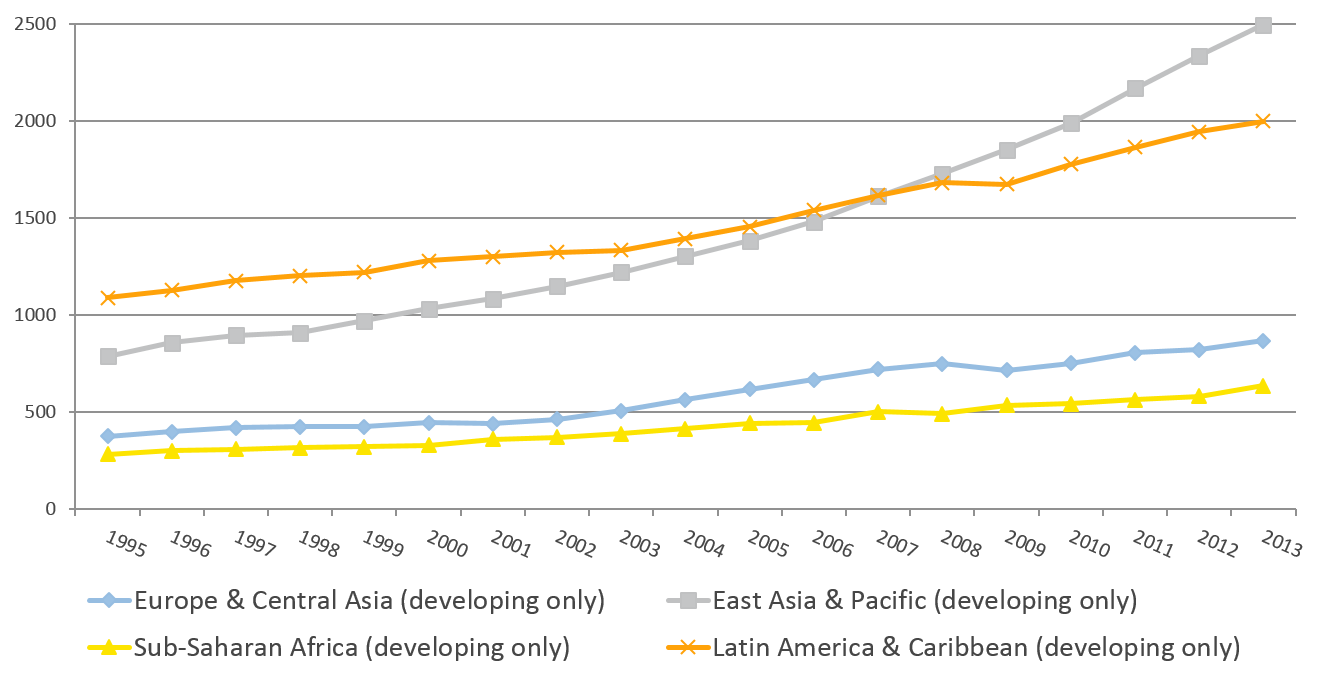
2. Child mortality has been nearly halved (mortality rate, under-5 per 1,000 live births)
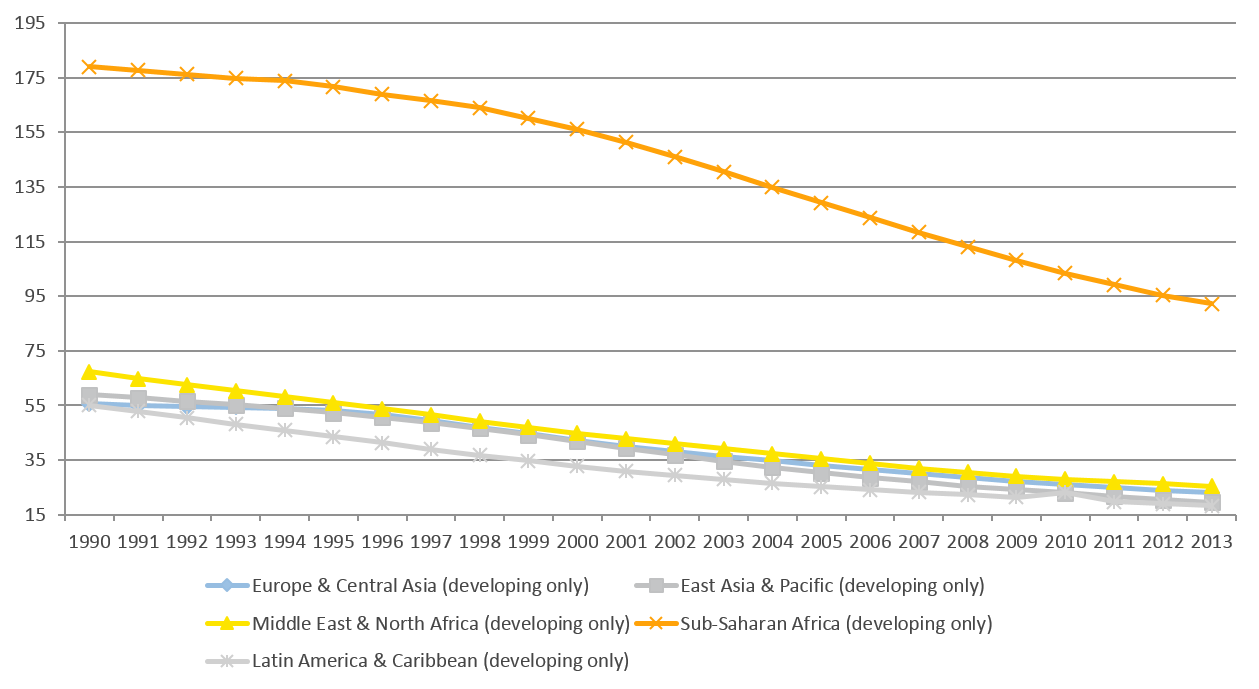
3. Girls’ secondary school enrolment has doubled (percentage of girls enrolled in secondary school)
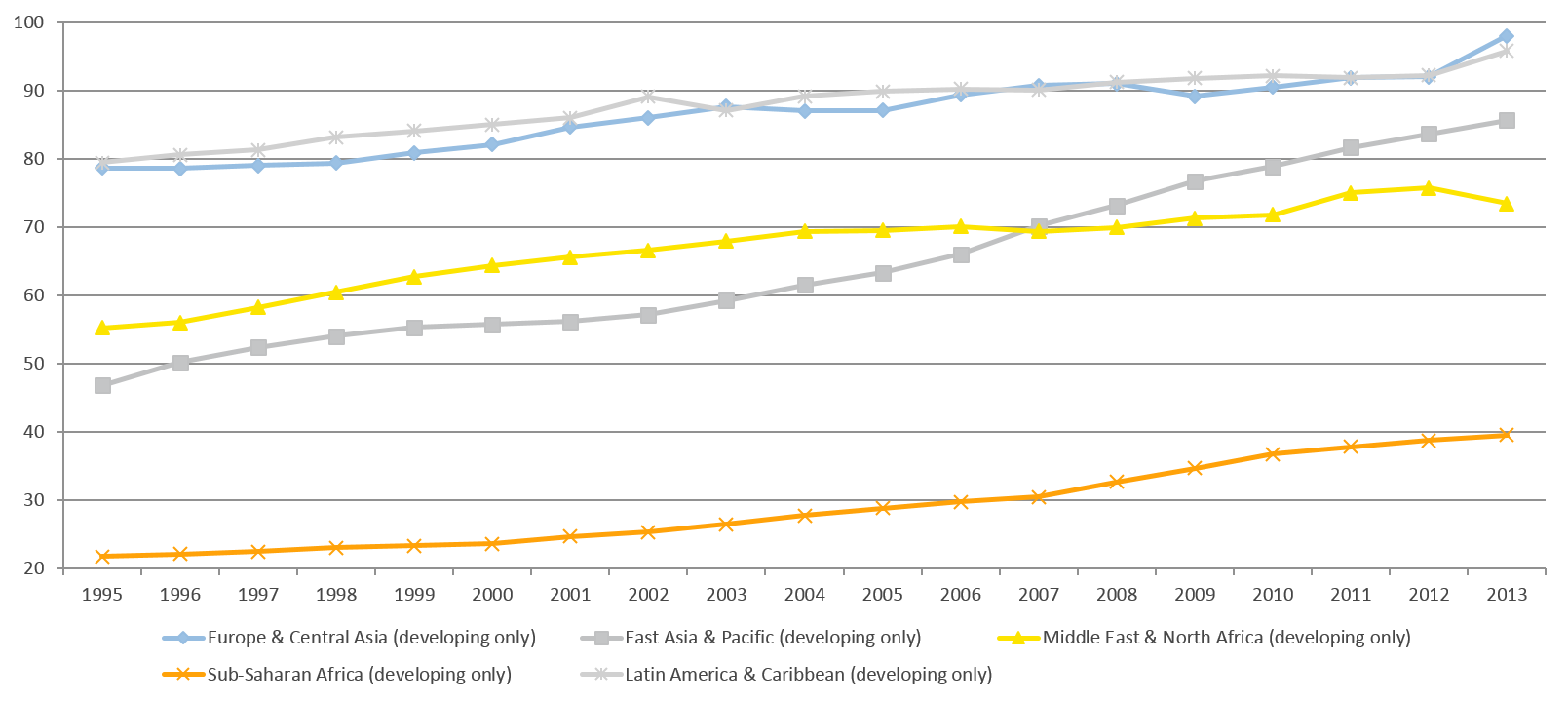
4. Child malnutrition has been significantly reduced (percentage of children under 5 that suffer from malnutrition.)
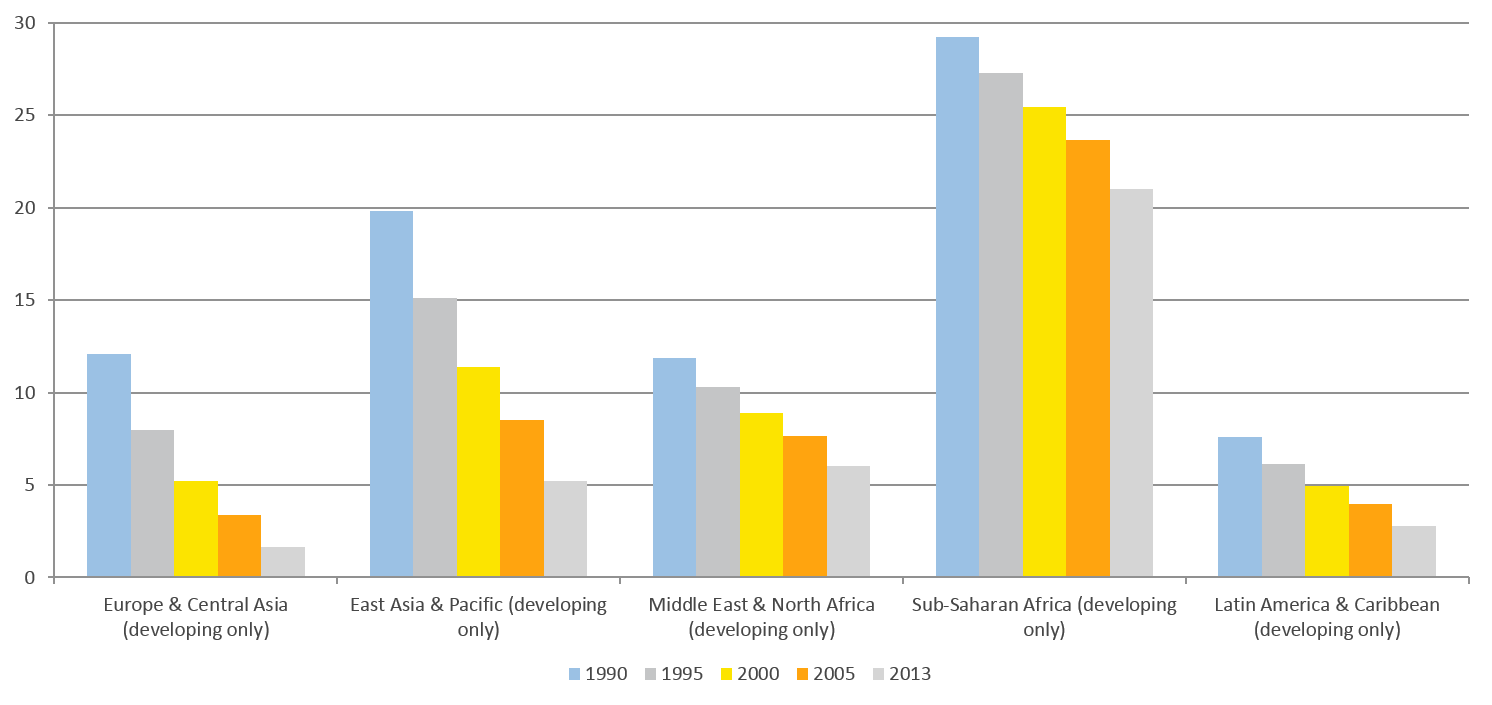
5. Access to clean water has improved significantly (percentage of rural population with improved water source.)

6. Mobile phone subscriptions have dramatically increased (cellular subscriptions per 100 people)
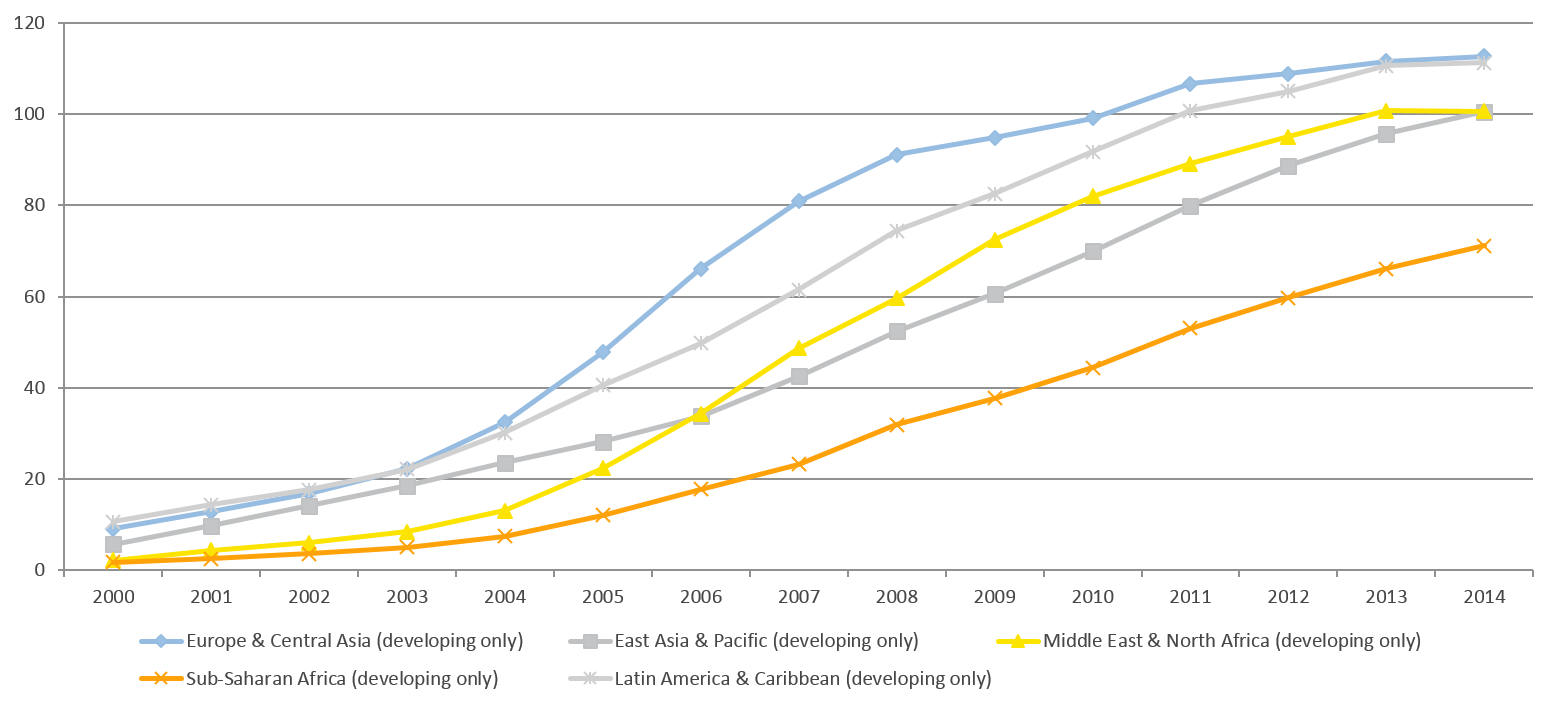
Overall, relative to previous periods, macroeconomic management has improved significantly; a new generation of policy makers and business leaders have entered the scene; and important gains have been registered in political stability, economic growth, and monetary and non-monteary indicators.
Challenges
Despite the impressive progress Africa has made over the last twenty years, challenges remain. Africa’s population is projected to surpass that of both India and China by 2050, and Nigeria is on a trajectory to become larger than the US. Africa will need more jobs. However, despite strong growth, employment creation has lagged. Agricultural productivity is constrained and industrialization has been slow to take place.
In order to rectify these problems a lot more growth in Africa is needed, which, with the presently available technology, implies a significant contribution to CO2 emissions as the region currently uses a lot of ‘dirty’ coal. In a world that now requires global emissions constraints this situation inevitably implies trade-offs.
Should Africa care about the global emissions issues?
The short answer is ‘yes’. Africa is both rich in renewable energy and likely to suffer worse economic consequences due to climate changes than other regions of the world. Africa therefore has both the natural resources and the incentive necessary to pursue a path of sustainable development. However in order to harvest this potential in the interest of the African people, and indeed the rest of the world, a huge effort is needed. Leadership is required now by those with decision-making authority and the necessary investment funds.
That is what makes events like the MIT Global Forum so important. Bringing together experts to discuss the latest research on clean energy, the economic impacts of climate change, and the challenge of sustainable development, provides the perfect opportunity to address these issues and to identify concrete win-win solutions to the challenge of sustainable development in both its socioeconomic and environmental dimensions.
This blog post is based on a presentaton given at XXXVIII MIT Global Change Forum: Environmental Change and Economic Development in Africa. You can view the full presentation slides below.
Footnote(s)
*A recent Afrobarometer survey suggests that ‘despite high reported growth rates, lived poverty at the grassroots remains little changed’ (Dulani et al. 2013); and others even question the growth revival referring to poor data.
 Join the network
Join the network

